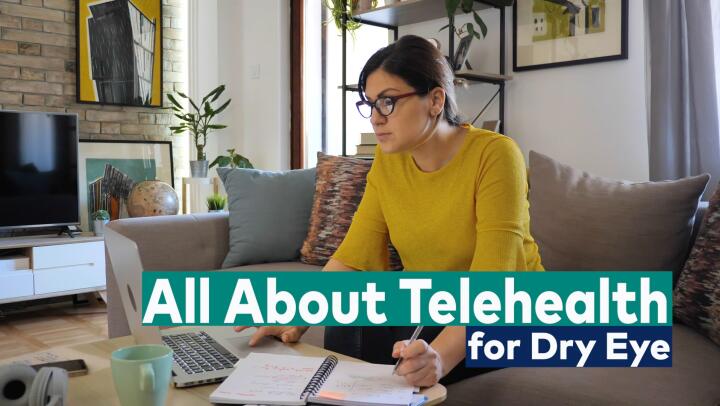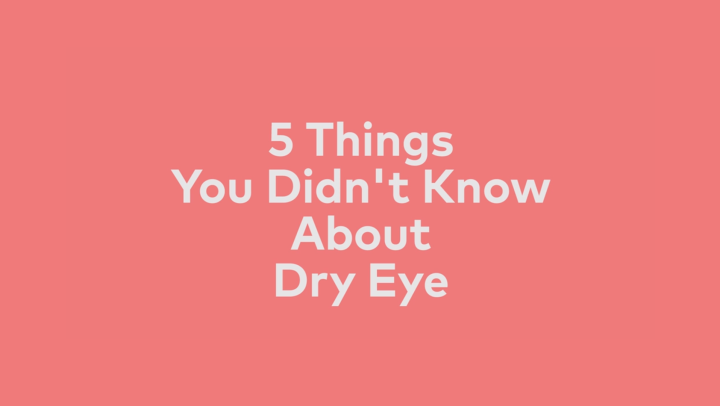What is seeing spots?
Seeing spots, which are often called floaters, means that you are seeing objects that look like small specks, circles or strands floating in your visual field. These spots or floaters are located within the eye itself and generally move with your eyes, although they also drift on their own. The spots are most noticeable when you are looking at a plain background. In rare cases, eye complications of diabetes may cause spots in your vision, but such spots do not float or drift.
Spots or floaters originate in the vitreous, a gel-like substance that fills the back portion of your eyeball. The proteins in the vitreous sometimes form clumps that are perceived as spots or floaters. Although floaters may be present at any age, they become more common as you get older, as the vitreous gel shrinks and aggregates. The vitreous is attached loosely to the retina, the light-sensing layer at the back of the eye.
The shrinkage of the vitreous may actually detach it from the retina. This condition, called posterior vitreous detachment, is very common in older people and is not harmful in itself. However, it increases the risk of retinal detachment, a sight-threatening condition in which the retina, the light-sensing layer of the eye, detaches from the blood vessels that supply it with oxygen and nutrients. Retinal detachment occurs painlessly, and its hallmark symptom is a sudden increase in seeing spots and flashing lights.
Seeing spots may also occur with migraines. Seeing spots or floaters generally does not interfere with your vision, although the floaters may be annoying or distracting. However, a sudden increase in floaters and seeing flashing lights may signal retinal detachment. Contact your health care provider if you suddenly start seeing more spots than usual.
The observation of spots or floaters generally does not indicate a serious medical condition. However, a sudden increase may signal retinal detachment, a life-threatening condition that requires urgent treatment. Seek immediate medical care (call 911) if you experience a sudden increase in the observation of spots or floaters, particularly if this is associated with flashes of light or the perception of a darkened area at the side of your vision.
Seek prompt medical care if your spots or floaters are persistent or cause you concern.
What other symptoms might occur with seeing spots?
Seeing spots most often occurs as a solitary symptom, though it occasionally accompanies other symptoms.
Other symptoms that may occur along with seeing spots
Seeing spots may accompany other symptoms including:
- Headache
- Seeing flashes of light
Symptoms that might indicate a serious condition
In some cases, seeing spots or floaters may occur with other symptoms that might indicate a serious condition that should be immediately evaluated in an emergency setting. Seek immediate medical care (call 911) if you, or someone you are with, are seeing spots or floaters along with other serious symptoms including:
- Blind spots
- Blurred or double vision
- Dark, shadowy area in your peripheral vision
- Sudden appearance of, or increase in, flashing lights in your vision
- Sudden increase in floating objects or spots in your vision
What causes seeing spots?
Seeing spots or floaters is due to the clumping of proteins in the vitreous, a gel-like substance in the back portion of the eye. This process occurs most commonly as a result of aging, which causes shrinking of the vitreous and aggregation of its proteins. The shrinkage may lead to posterior vitreous detachment, which increases the risk of retinal detachment. However, clumps of protein in the vitreous may also be congenital or caused by eye injuries.
Common causes of seeing spots or floaters
Seeing spots or floaters may be caused by:
Diabetes (chronic disease that affects your body’s ability to use sugar for energy)
Normal aging
Posterior vitreous detachment
Serious causes of seeing spots or floaters
In some cases, seeing spots or floaters may be a symptom of a serious condition that should be immediately evaluated in an emergency setting. These include retinal detachment (detachment of the light-sensing layer inside your eye from the blood vessels that provide it oxygen and nutrients).
Questions for diagnosing the cause of seeing spots or floaters
To diagnose your condition, your doctor or licensed health care practitioner will ask you several questions related to your seeing spots or floaters including:
How long have you been seeing spots or floaters?
Have you noticed any sudden increases in the amount of spots or floaters?
Are you observing flashes of light?
Are you seeing spots in both eyes or just one eye?
Are you taking any medications?
Do you have any other medical conditions?
Do you have other symptoms, particularly other symptoms affecting your eyes or vision?
What are the potential complications of seeing spots?
Seeing spots or floaters is usually a symptom of harmless shrinkage and protein clumping occurring in the vitreous, the gel-like substance in the back of the eye. This process occurs as part of normal aging. However, in some cases, seeing spots, and especially a sudden increase in spots, may be a symptom of more serious conditions such as retinal detachment or eye complications of diabetes. Once the underlying cause is diagnosed, it is important for you to follow the treatment plan that you and your health care professional design specifically for you to reduce the risk of potential complications including loss of vision and blindness.













